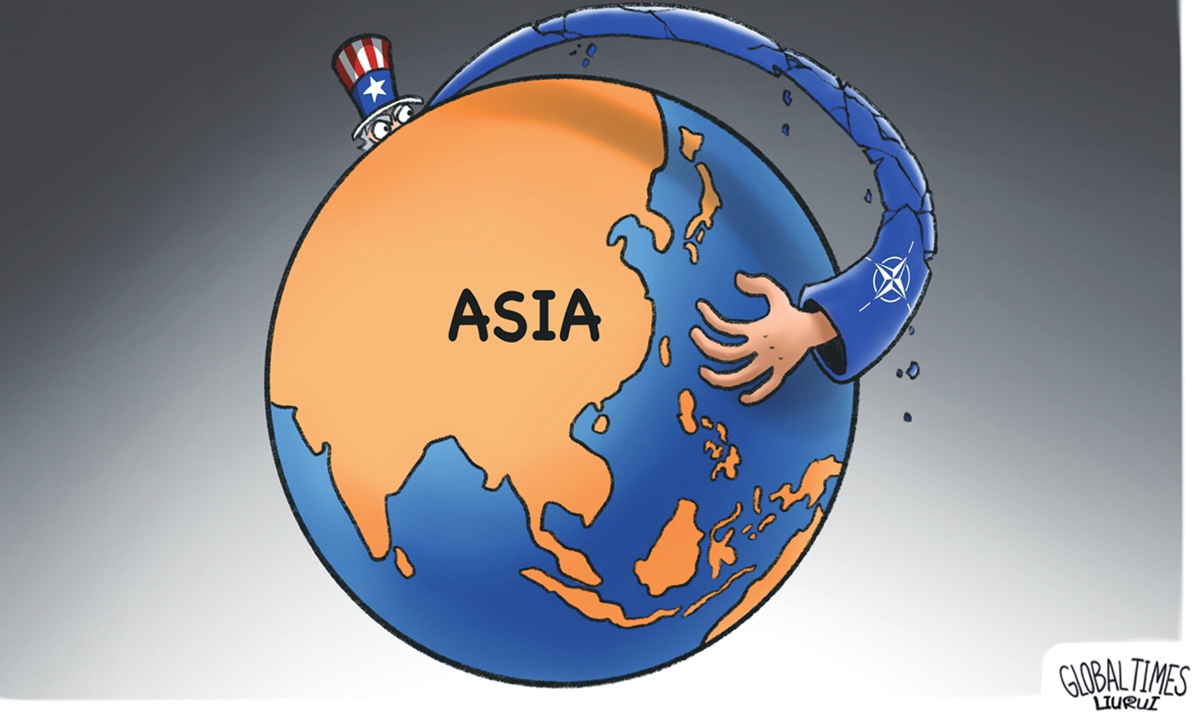
Illustration: Liu Rui/GT
US envoy to Japan Rahm Emanuel said on Wednesday that the US and its allies should form a coalition that can be a sort of NATO to counter China's "economic coercion" with a unified stance, which was slammed on Thursday by Chinese observers as "daydreaming."
One idea could be a trade-defense coalition, Emanuel said, citing Princeton political scientist Aaron Friedberg. For that to be effective, he suggested it "would need the economic equivalent of NATO's Article 5 - an attack on one is an attack on all - at its core," according to media reports.
Chinese observers said on Thursday that it would be difficult for such a proposal to be put into practice, as other countries have their own economic interests and will not rally around the US.
Emanuel, who has been described by Japanese media as being "known for his tough stance on China," first published his idea in an article in the Wall Street Journal and also talked about it with CNBC in a televised interview on Wednesday local time.
The US envoy's proposal of a "NATO-like" structure in the economic sense in the region comes at a time when Japan's new prime minister Shigeru Ishiba's idea of creating a NATO-like collective defense architecture in Asia has grabbed headlines, Kyodo News reported.
The US and its Asian allies - Japan and South Korea - have differing economic interests concerning China, and consistent actions such as those described by Emanuel would be very difficult, Xiang Haoyu, a research fellow in the Department for Asia-Pacific Studies of China Institute of International Studies, told the Global Times on Thursday.
Therefore, the US envoy's call to form a NATO-like economic group is "daydreaming," observers said.
But the timing of Emanuel's proposal is interesting - Ishiba himself has played down the idea of an "Asian NATO" and there are signs of positive China-Japan interactions.
Before leaving for Laos, Ishiba said he had no intention of broaching the "Asian NATO" idea at the ASEAN summit meetings.
Takeshi Iwaya, Japan's newly appointed foreign minister, said in a Wednesday phone call with Chinese top diplomat Wang Yi that the new Japanese cabinet is willing to comprehensively promote the strategic relationship of mutual benefit between Japan and China and is committed to building a constructive and stable bilateral relationship.
As a stable China-Japan relationship is perceived not to be in the US interests, Emanuel's remarks might be aimed at making noises over the relations and testing Japan's reaction, Da Zhigang, director of the Institute of Northeast Asian Studies at the Heilongjiang Provincial Academy of Social Sciences, told the Global Times on Thursday.
Analysts warned that as Japanese society is leaning toward the right and the US will continue to put pressure on Japan, it remains to be seen where the new cabinet is heading.




